- Home
- Steven Brust
Dzur Page 17
Dzur Read online
Page 17
“In a mood today, eh Boss?”
“A good mood, Loiosh. For the first time in longer than I care to remember.”
“I’m not sure I believe it. So, what are we going to do first?”
“Kill the Demon Goddess.”
After a moment, he said, “Boss, any other time, I’d say, ‘ha ha: But—”
“No, you can say ‘ha ha. We aren’t really going to put a shine on the Goddess—”
“Good!”
“—today.”
“Then what are we doing?”
I outlined the plan. He didn’t make any remarks about how stupid it was. Since every time in the past that he’d told me my plans were stupid I had survived, the fact that he liked this one gave me a moment’s pause. I put some things in a bag, slung the bag over my shoulder, and headed out.
For the first order of business, I went out into the morning and had myself a fresh, warm langosh from the cart down the road. I went into the inn across the street from it and drank a cup of mediocre klava. Don’t think I’m complaining about that klava, by the way—I enjoyed it thoroughly. Living without any klava at all was still fresh in my mind.
In any case, the langosh was magnificent.
I left the inn and walked around to the back.
“Loiosh, is—?”
“You’re clear, Boss. No one is watching.”
Sandor went into a neat little package behind a trash container, and Vlad was back for a few hours. Loiosh and Rocza appeared, waited, hovering uncomfortably with much flapping of wings until I had adjusted my cloak, and then landed on my shoulders.
“Good to see you, Boss.”
“It’s good to be back.”
I checked to make sure this and that were accessible and loose enough to get at, then said, “All right. Let’s do it.” Lady Teldra, her sheath slapping at my leg, almost seemed to agree.
It was a long walk to Falworth Square, most of the way to the Five Mile Bridge. The air was sweet with the ocean and no trace of the slaughterhouses.
“Always best to get killed on a nice day, eh Boss?”
“That’s more like it. I was missing your cynicism?”
At one point, I noticed that I was humming, and stopped.
Loiosh and Rocza took turns flying above me, circling, sometimes landing on my shoulder. I had the feeling that Rocza, too, was glad to be back with me. I was glad to have her back, too. I reached up and scratched under her chin.
“Okay, Loiosh. The action gets going on Falworth Hill.”
“I thought we were going to that place on Harmony.”
“We are. That’s first. But the action doesn’t start until we get to Falworth.”
“Oh. So I can nap through this first part?”
“Actually, you probably can. But just to be safe—”
“Right, Boss. So, what now?”
“Now we get to spend several hours bored out of our skulls.”
“I can hardly wait.”
I was right, too. I found the place easily enough, on Harmony about a quarter of a mile northeast of Six Corners, positioned myself across the street from Number Four, ducked into a shadow, and waited. Loiosh went around to the other door. He waited, too. About three hours and a little more, which is what you get when you start early in the morning.
“Check me on this, Boss: An Easterner, a little taller than you, clean-shaven, short blond hair, gold ring in his left ear, wearing a sort of short sword in a brown leather sheath?”
“That’s our man. Score one for the Irregulars. So he went out the back?”
“Yes, and he’s heading north.”
“On my way. Don’t lose him.”
“That’s not likely.”
I fell in about a hundred and fifty feet behind Josef. The streets curved too much for me to see him, but Loiosh was there. The guy’s first stop was useless to me—he just stood out on the street, talking to someone in a doorway. That was all right; I had plenty of time.
He headed off toward Ristall Market, which was no surprise. About halfway there, he stopped at a blacksmith shop.
“What do you think, Loiosh?”
“He might just need some nails.”
“I mean, does this look like a good place?”
“From the outside, it seems good. Not too much traffic, anyway.”
I had actually already made the assumption that he didn’t need nails. Loiosh and Rocza landed on my shoulder as I entered the place, about two minutes after Josef. As I walked in, I wasn’t holding a weapon, because I can get to one fast enough if needed, and because once, long ago, I walked into a place wielding and stepped straight up to a pair of Phoenix Guards who didn’t think it was funny at all.
It was four walls with no ceiling, and a door in the back that I suppose led to his living quarters; and even with no ceiling, the heat struck me at once. The forge was huge and glowing orange, there were two long tables, one on each side, and they were full of weapons. Excuse me, tools. The blacksmith—at least, I assume he was a blacksmith; he was wearing an apron, anyway—had olive skin, a neat little beard, and bright blue eyes. As the eyes shifted to me, I nodded a greeting and told him, “I need to speak to this fellow; would you mind leaving us alone for a minute?”
Josef turned around. “Just who are you suppos—”
I slapped him hard enough to rock him back on his heels, and by the time he recovered I was holding a knife at his throat—a nice stiletto with about nine inches of skinny blade and a wicked, wicked point. The blacksmith retreated through the door in the back of his shop. A little part of me observed that I was enjoying this more than I should.
“We’ll just be a moment,” I told the door the blacksmith had gone through.
The place smelled like sulfur and charcoal. Josef’s head was tilted back away from the knife and he was glaring at me. I said, “How do you do, Josef? My name is Vlad. I’m just here to give you a little information. And don’t glare at me, I have a knife at your throat. When you have a knife at my throat, then you can glare at me. As I said, I have information for you. Do you want to hear it, or do you want me to find out if I can tickle the top of your skull from the inside?”
“Say it, then,” he said, just barely not spitting.
“You need to find honest work. Or a different kind of dishonest work. But your scheme for Ristall Market is over as of now. Tell your associates, unless you want me to talk to them.”
“Who—?”
I pushed a bit with the dagger, forcing his head further back and breaking his skin a little. “No,” I said. “You aren’t talking yet. I’m still talking. When I ask you questions, you can talk.”
I cleared my throat.
“As I was saying, you’re done. You don’t need to tell the merchants, they’ll figure it out. And you don’t need to tell the Jhereg who set you up in this, I’ll take care of that.”
A flicker behind the eyes? Oh, yes. I’d known anyway, but the confirmation was nice.
“Now, to my question: Who was it? I need a name, and I need to know where he can be found.”
He hesitated. I moved the knife just a little bit away from his throat before hitting him in the stomach with my left hand. Then, when he doubled over, I smacked the side of his face with the hilt of the knife. Loiosh flew down from my shoulder and hovered for a moment in his face before landing on the floor in front of him and hissing.
“I’m sorry,” I said. “I didn’t quite catch the answer. What did you say his name was?”
He coughed, which wasn’t responsive, but I didn’t hit him again. He spat out some blood and said, “I’m going to—” and I kicked him in the face. He was tougher than I’d expected, but the kick finally did it.
“Vaasci,” he said.
“How do you get hold of him?”
He hesitated only a second, then said, “Back room. The Twig on Falworth Hill.”
“Good. Now listen. I’m going to talk to your friend Vaasci. If it turns out that he’s expecting m
e, I’m going to come back here and decorate Ristall Market with your intestines. By the time I’m done talking to him, you might want to be out of town, because I’m going to tell him you gave me his name, and that might irritate him, if he’s still alive.”
“You—”
I hauled my foot back to kick him again and he shut up.
I said, “In case you haven’t picked up on it, I don’t like you very much. You’re better off not giving me any reason to like you less. Feel free to tell your buddies about me, though. If they leave town, it’ll give me less to do. And if they come after me, I’ll enjoy it enough that I won’t care about the extra work.”
Loiosh resumed his place on my shoulder. I turned my back on Josef and walked out.
South Adrilankha smelled unusually sweet.
“Boss, you know you’re a bully.”
“Yeah.”
“And worse, you enjoy it.”
“Yeah.”
“You’ve missed being a bully all these years.”
“Yeah.”
“I’m proud to know you.”
“Uh huh.”
I headed generally west until I found a market that was open. I got some klava from a street vendor, paying an extra few coppers for a glass to drink it out of. I stood there drinking it. Right out in the open, looking like me, two jhereg on my shoulders. The klava was wonderful.
“So, okay, that was the easy part, right, Boss?”
“You nervous?”
As I said it, Rocza shifted on my left shoulder. “A little,” said Loiosh.
“What about?”
“Standing here like this.”
“Okay. We’ll walk.”
We did; aimlessly, but generally west, veering a bit northward now and then. It was still early, and I didn’t figure Vaasci to be the early type. At least, I never had been when I’d been with the Organization.
“Okay, Boss. Can you explain something to me?”
“Probably not, but I’ll try.”
“Are you deliberately giving that Easterner time to do what you told him not to?”
“You mean, time to alert Vaasci? Yes.”
“You didn’t explain that part of the plan to me.”
“It was a spur-of-the-moment thing.”
“Mind telling me why?”
“I don’t think I can explain.”
“Oh.”
“I’ll try, though. First, I want to know if he will. I mean, if Josef actually gets the message to Vaasci, that will tell me whether there’s a loyalty, or maybe just that Josef is more afraid of Vaasci than he is of me. I need to know that.”
“At the mere cost of walking into a trap?”
“Heh. Like we’ve never done that before?”
“Not on purpose. Well, not often on purpose.”
“Second ... it’s harder to say.”
“You’re hoping for the chance to kill someone?”
“Not exactly.”
“You’re hoping someone will try to kill you?”
“That’s closer.”
“Boss—”
“Kicking that bastard in the face gave me a taste, Loiosh. I need more than a taste.”
“Boss, I don’t understand.”
“I know.”
“But I don’t like it.”
“I know.”
“It’s not like you to make decisions based on—”
“I know. Have you ever been half asleep, where you aren’t sure if you’re dreaming or not?”
“I don’t dream, Boss.”
“Yeah, well, I said it was hard to explain.”
“Boss—”
“The thing is, if you’re in a situation where you don’t know if you’re dreaming, you try to wake yourself up to see.”
“I’ll take your word for that.”
“And if that doesn’t work, you play it as if it’s really happening, because what other choice do you have?”
“Half asleep is no time to make decisions.”
“I never said it was.”
“That’s reassuring.”
“Besides, there’s still useful information to be gathered. So there’s a practical side of this.”
“Right. Useful information. Okay, Boss?’
“Then again, I could get to the Demon Goddess, wave Lady Teldra in her face, and say, ‘You caused this problem, now fix it.’ I have to admit, I like the idea of the Demon Goddess appearing in the middle of a Council meeting and setting the Jhereg straight?”
“I like it too, Boss. But I doubt it’s practical.”
“Yeah. I don’t know how to get to her Halls, for one thing.”
“That’s a relief.”
“Uh ... come to think of it, maybe I do.”
“Boss—”
“Never mind, Loiosh.”
I finished my klava and handed the cheap glass to an old beggar, along with a couple of copper pieces. You see a fair number of beggars in South Adrilankha; I’ve never seen one in the City. Maybe Dragaerans kill their beggars. I wouldn’t put it past them.
I walked the streets aimlessly for a while. At the time, I was just thinking about giving Vaasci time to show up. On reflection, maybe I was tempting fate and the Jhereg. But no one took a run at me.
“I’m trying to decide if it’s time to cross over to the City and have that talk.”
“Boss, what’s the point in pulling a weapon before you have a target?”
“I have a target, Loiosh.”
“Oh. I hadn’t thought of that.”
“The thing is, that’s going to really set things popping.”
“Yes, it will.”
“The timing is going to be tricky.”
“Yes, it will.”
“Especially because I don’t know how long the, uh, weapon is going to take. I mean, I have no idea. A day? A year? Something in between?”
“Well, you could always tell him to make it fast.”
“You’re funny.”
“You make a good example, Boss.”
“And then, really, when you’re calculating how someone will react to something, you never know. I mean, I think I know what he’ll do, but what if I’m wrong?”
“Yeah. What if.”
“So I’m trying to figure out—”
“You’re scared, right, Boss?”
“Not scared exactly. Call it nervous.”
“Uh huh.”
I juggled this and that in my head. It was a couple of hours after noon. I said, “All right, Loiosh. Let’s head over there.”
“To the City?”
“No. We’ll hold off on that part.”
“Oh, the fun part.”
“Uh huh.”
He and Rocza launched themselves into the air, and we set off.
Falworth Hill overlooks the Stone Bridge, which, someone once told me, is the bridge the Empress would take if she ever crossed the river. It is the place where the elite among Easterners live next to, or, at least, not too far from, Dragaerans in that odd in-between station in life where they are willing to rub shoulders with us. I’ve met a few of them; they are mostly Chreotha and Tsalmoth, with a few odd Iorich here and there. They’re strange. To Easterners who live on Falworth Hill, they are either genuinely friendly or they fake it enthusiastically. To other Easterners, they are even worse than your typical Dragonlord, if you can imagine it.
“What’s the play, Boss?”
“They have a glass window.”
“Okay, so they’re rich.”
“Yeah. You and Rocza ready to break a window?”
“Can do.”
“You sure? Remember—”
“I can do it, Boss.”
“Okay. I’ll let you know where I am. The better the timing, the more boring this is going to be.”
“I’m in favor of boring.”
“That’s two of us.”
Between Pear Orchard and Driftwood Streets in the Falworth Market is a great, square, red stone building that rents out sp
ace to several businesses. The front, where it faces the market, is a public house with a piece of wood painted on the sign. I think it was supposed to be The Driftwood Inn, but everyone calls it The Twig. It was a nice place; padded benches and chairs around dark hardwood tables, etchings on all the lanterns, and like that.
I got some stares as I walked in. The host frowned at me and might have said something about Easterners not being permitted, but I gave him a look before he could say anything, and I guess he thought better of it. Besides, I didn’t sit down; I walked straight through to the back of the room and pushed aside a curtain.
“Straight to the back, and through a—”
“I saw, Boss.”
Two Dragaerans sat at a table, looking at a ledger of some kind. Both wore the black and gray of House Jhereg.
One of them looked up at me. “Who are you supposed to be?”—which would have been an interesting question if I were still being Sandor.
“You must be Vaasci.”
“That wasn’t the question.”
“I’m a messenger.”
“From?”
“Your friend Josef.”
“Who?”
I suddenly got worried; he looked sincere. “Josef,” I said. “Easterner? Ristall Market?”
“Oh, that. Well, what does he want?”
“He said that the operation is over and he’s leaving town.”
Vaasci frowned. “Why?”
“Because if he didn’t, he was going to be harmed.”
“Harmed?”
“Yeah.”
“Now, Loiosh.”
“We’re on the way.”
“By who?”
“Me.”
I smiled.
His eyes narrowed, and I had the sudden feeling he might have recognized me. Then the curtains moved and Loiosh and Rocza came flying in. Or, actually, Rocza came flying in. I was going to ask Loiosh where he was, but then things happened quickly.
They both stood up, and Rocza flew into the face of Vaasci’s friend, who lost his balance and landed in his chair again. I rammed a shoulder into Vaasci, drew a dagger, and shoved it into the one who was sitting. I caught him below the heart, left the knife there, and turned to face Vaasci. It was like a dance. Pretty slick.
I drew Lady Teldra, and drawing her, felt a sudden rush of invincibility. I’d have to make sure not to believe that rush; it could get me into trouble. But this time, at least, it seemed justified: Vaasci made a little squeaking sound, very un-Jhereg-like, and flinched.

 Phoenix
Phoenix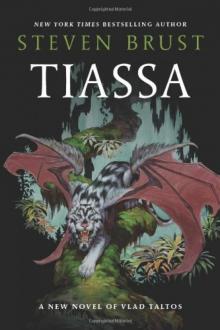 Tiassa
Tiassa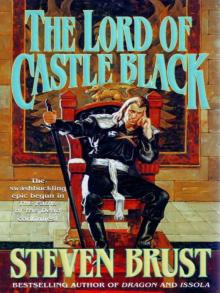 The Lord of Castle Black
The Lord of Castle Black To Reign in Hell: A Novel
To Reign in Hell: A Novel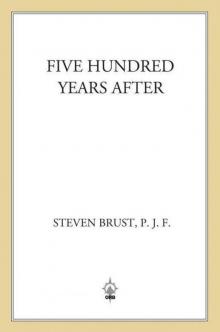 Five Hundred Years After (Phoenix Guards)
Five Hundred Years After (Phoenix Guards)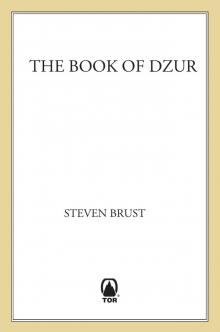 The Book of Dzur: Dzur ; Jhegaala
The Book of Dzur: Dzur ; Jhegaala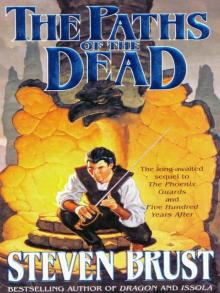 The Paths of the Dead
The Paths of the Dead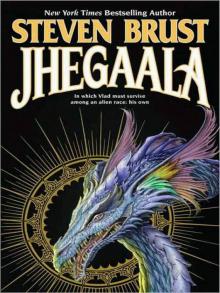 Jhegaala
Jhegaala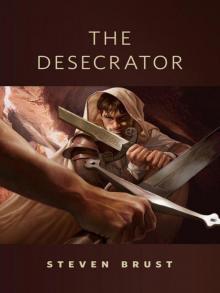 The Desecrator: A Tor.com Original
The Desecrator: A Tor.com Original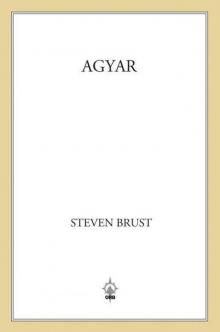 Agyar
Agyar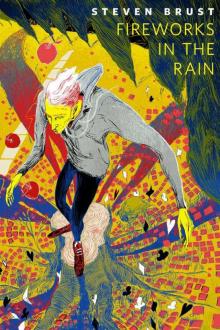 Fireworks in the Rain
Fireworks in the Rain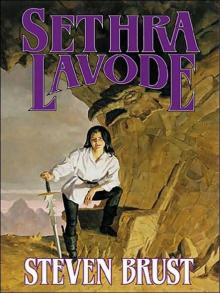 Sethra Lavode
Sethra Lavode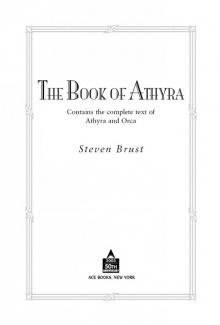 The Book of Athyra
The Book of Athyra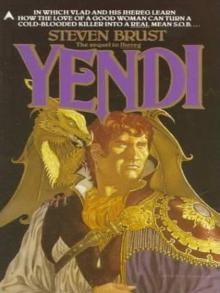 Yendi
Yendi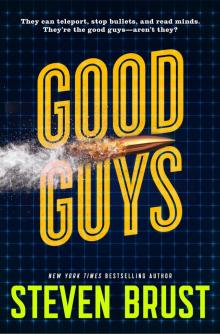 Good Guys
Good Guys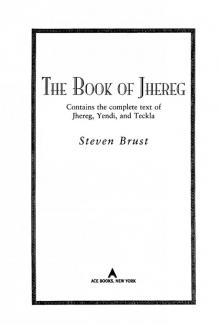 The Book of Jhereg
The Book of Jhereg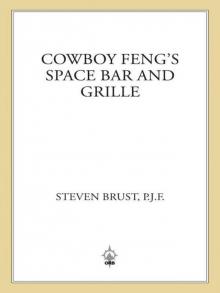 Cowboy Feng's Space Bar and Grille
Cowboy Feng's Space Bar and Grille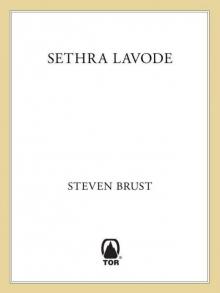 Sethra Lavode (Viscount of Adrilankha)
Sethra Lavode (Viscount of Adrilankha) My Own Kind of Freedom
My Own Kind of Freedom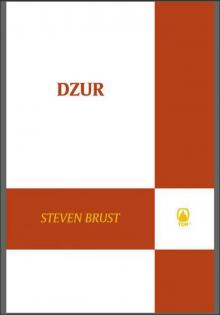 Dzur (Vlad Taltos)
Dzur (Vlad Taltos)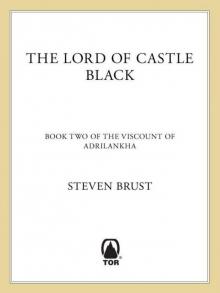 The Lord of Castle Black: Book Two of the Viscount of Adrilankha
The Lord of Castle Black: Book Two of the Viscount of Adrilankha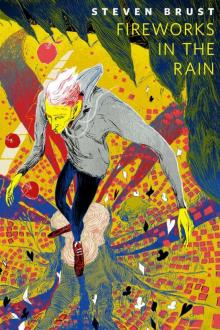 Fireworks in the Rain: A Tor.Com Original
Fireworks in the Rain: A Tor.Com Original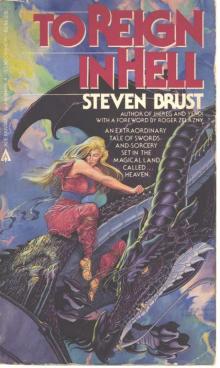 To Reign In Hell
To Reign In Hell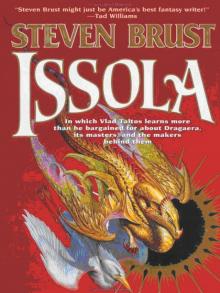 Issola
Issola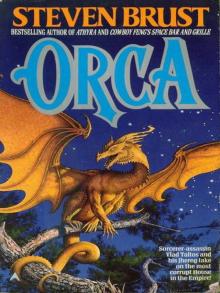 Orca
Orca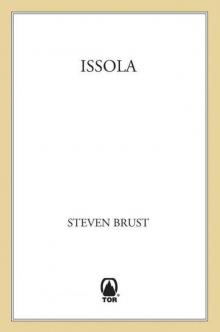 Issola (Vlad Taltos)
Issola (Vlad Taltos)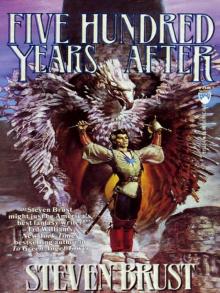 Five Hundred Years After
Five Hundred Years After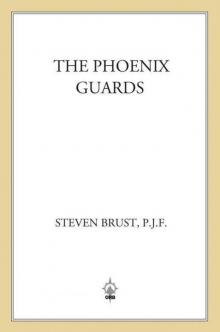 The Phoenix Guards
The Phoenix Guards Taltos
Taltos![[Vlad Taltos 06] Athyra Read online](http://i1.bookreadfree.com/i1/03/24/[vlad_taltos_06]_athyra_preview.jpg) [Vlad Taltos 06] Athyra
[Vlad Taltos 06] Athyra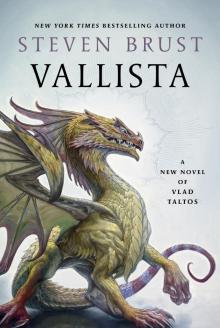 Vallista--A Novel of Vlad Taltos
Vallista--A Novel of Vlad Taltos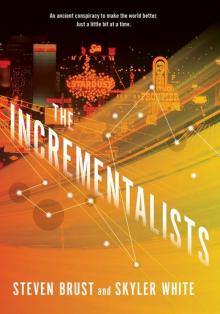 The Incrementalists
The Incrementalists![[Vlad Taltos 04] Taltos Read online](http://i1.bookreadfree.com/i/03/24/[vlad_taltos_04]_taltos_preview.jpg) [Vlad Taltos 04] Taltos
[Vlad Taltos 04] Taltos![[Vlad Taltos 03] Teckla (v 1.1) Read online](http://i1.bookreadfree.com/i1/03/27/[vlad_taltos_03]_teckla_v_1_1_preview.jpg) [Vlad Taltos 03] Teckla (v 1.1)
[Vlad Taltos 03] Teckla (v 1.1)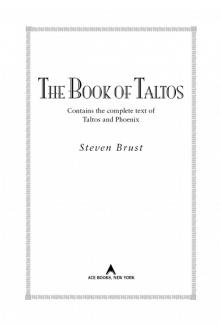 The Book of Taltos
The Book of Taltos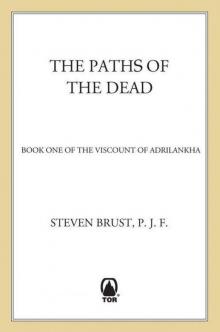 The Paths of the Dead (Viscount of Adrilankha)
The Paths of the Dead (Viscount of Adrilankha)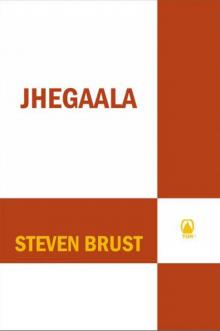 Jhegaala (Vlad Taltos)
Jhegaala (Vlad Taltos)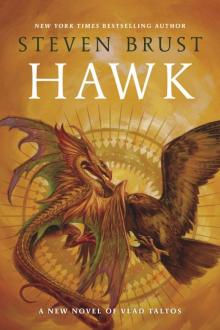 Hawk (Vlad)
Hawk (Vlad)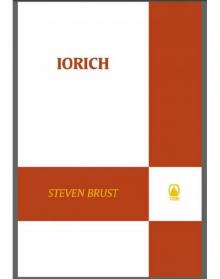 Iorich
Iorich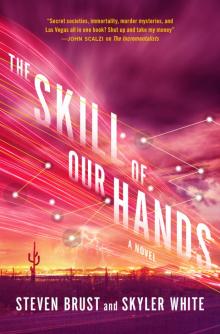 The Skill of Our Hands--A Novel
The Skill of Our Hands--A Novel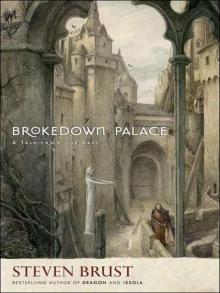 Brokedown Palace
Brokedown Palace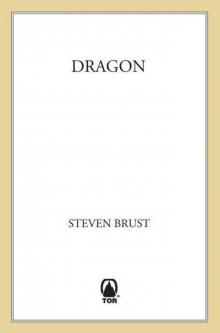 Dragon (Vlad Taltos)
Dragon (Vlad Taltos) Dragon
Dragon Athyra
Athyra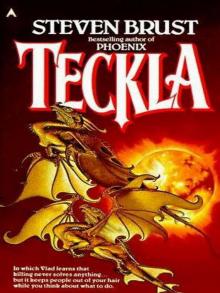 Teckla
Teckla Dzur
Dzur